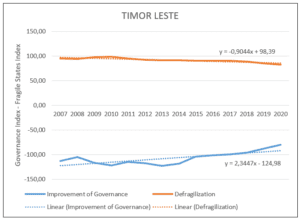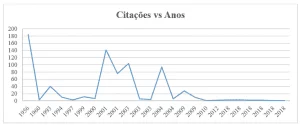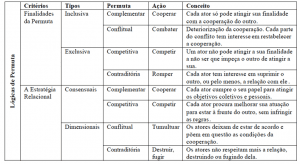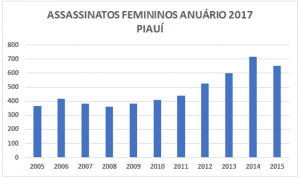LIMA, Sebastiana Inácio [1]
LIMA, Sebastiana Inácio. The Female Role in the early days of Brazilian Protestantism. Multidisciplinary Core scientific journal of knowledge. 9 Edition. 02 year, vol. 02. pp 5-12, December 2017. ISSN:2448-0959
Summary
This article titled: the Female Role in the early days of Brazilian Protestantism is an introductory study about Protestant Christian woman in imperial Brazil, highlighting especially Sarah Reid Kalley, Martha Watts and Charlotte Kemper, foreign missionaries were sent to Brazil and built part of the history of Protestantism. The article is divided into four parts after the introduction. In the first part, we introduce the topic, from some women who lived in the Medieval period. In the second part, the lack of mention of female names in the history of the Protestant Reformation. In the third part, the Christian woman and studies, finally, in the fourth part, we bring some biographical data about Sarah Reid Kalley, Martha Watts and Charlotte Kemper. This work analyzes the female role and the difficulties that women, mostly Christian, faced throughout history. We adopted for this article: the bibliographical research, consultation documents available on the web and class notes.
Key Words: Role, Female, History, Protestantism, Brazilian.
1. Introduction
The history of the Christian religion is the history of masculine leadership, as well as the history of philosophy and of other knowledge. When we do this kind of assertion, we tend to receive the replica, that we are using a feminist discourse, however, it is not necessary to be a woman, or a feminist, to conclude that the woman throughout history, even being trained, not always had room for be subject of history.
In order to know more about female leadership in Brazilian Protestantism in the late 19th century, came the opportunity to carry out this research, which is still, but intends to tackle introductory a little about the historical aspects surround the feminine universe involved in the deployment process of the bases of Protestantism in Brazil.
There is no doubt the role of women in the history of all institutions, cultures, religions, etc., in the history of Brazil, too, the woman had a significant role, thinking that we will learn a little about some women who had paper most important in the history of Protestantism in Brazil.
When it comes to theological knowledge, the man always had priority. The woman, couldn't fit the need of knowledge, since your function in the realm of men was lower oriented study would be of little value. That's pretty old, for example, since the 19th century. XIII we see that the participation of women in writing is given "active with Héloïse, she had an unusual education for the women of your time", (2013, p. 3), also with two other women, different of Héloïse, however, humans with intelligence and cognitive abilities similar to men:
Hildegard von Bingen, Benedictine nun who left a considerable work that addresses, among other areas of knowledge, theology, philosophy, music and exegesis. And, finally, Marguerite Porete, Beguine, author of Le moiroeur des simple ames, written possibly in mid 1290 and that addresses, in a mystical vision, love and freedom; book with which the author was burned in the public square on June 10 1310. Marinho, (2013, p. 3)
Talking about women who dared to think, do theology and to express the desire for freedom, is an issue that hits the universe of the Kingdom of men, marked by contempt for the female and the curtailment of any degree of freedom expressed by women. Enter a little examples like Heloise, Hildegard and the Beguine Marguerite Porete, to illustrate a little women's role in the universe of writing and theology, however, the target of this research brief is to know the role of some Protestant women , the Brazilian imperial period stood out as a model of knowledge, work and dedication to work.
2. THE LACK OF MENTION OF FEMALE NAMES IN THE HISTORY OF THE PROTESTANT REFORMATION
We know that the reformers had your importance by your work and theological and doctrinal content which produced and this is notable, but in this context also had women who participated. Not only their wives, also some single missionary, or ex-religiosas of the Roman Catholic Church, converted to Protestantism.
But the story told is that managed to succeed, heroes, Kings and mighty, the wife of the Old, Medieval period and in Brazil, Empire didn't have half the space that won in the history of the present day. To support this argument, let's see what the teacher Ruth Abdul Latif Abdullah says:
The positivist history, written by male hands and focusing on major events and characters, forgot or didn't bother to mention the participation of women in religious reformation of the 16th century. Were few and small entries to them. Therefore, for a truer history writing is necessary to rescue this valuable contribution, because when the story is told by half is not complete. ABDULLAH, (2017).
So the story is complete, you need to mention their authors and their characters, as they are forgotten or omitted, have a history of inset, intersected by prejudice.
An interesting fact is the following: when being asked about the names of the reformers, in the Act responded: Luther, Calvin, Zwínglio, John Knox … But, we forget that not only men's history, in this set of reformers, there were female voices, hands and attitudes that helped build all this historiographical building.
The participation of women in retirement, not through great theological treatises, but, according to Almeida, (2017):
However, although relevant, female participation in the movement was different, because it did not produce major theological treatises and even acted in serious discussions. The women preferred a more lenient approach, through a more intimate literature. […] Their voices were heard through their sentences.
Ruth Abdul Latif Abdullah, CITES five women who had their voices heard in the reform, are: Marie Dentière, Catherine Zell, Árgula von Grumbach, Marguerite of Navarre, Jeanne D'albret. Given that we can actually figure out which were women who knew how to fulfill your role of dignified, virtuous way, being promoting own story without having to stay behind the scenes, history.
3. THE CHRISTIAN WOMAN AND STUDIES
When we think of education in contemporary times, we wondered the women who lived in the 19th century and the difficulties they had to access knowledge. The Brazil of that period did not offer resources to public education, the school image that we have in our minds is far from what it was in fact the concept of school.
With regard to Protestants who came to Brazil from Europe and North America, they made use of the press and produced leaflets of educative. Was at the heart of the Protestant Reformation, the use of reading to facilitate understanding of the Scriptures and not be mediated by Catholic priests, as was practiced by Catholicism. With this need, gave the margin rise of schools of first letters, motivated by the ideal mother-tongue literacy reform.
Within this perspective, we will highlight the work of some women, foreign Protestants, who had featured in education. Not only in education, however, played various roles in a way that made history with your way of acting in the most diverse social and cultural contexts.
4. THREE WOMEN WHO MADE HISTORY IN BRAZIL EMPIRE
4.1 Sarah Reid Kalley
Sarah Poulton Wilson was born in Nottingham in England in 1825, since your youth was a woman ahead of your time.
The ten-year-old Sarah was sent to a boarding school (with strict Puritan principles) which was located near the town of Fairfield, where lived your paternal grandmother. Sarah spent six years at the institution preparing for their future ministries: pianist, musician, painter, poet and polyglot, and had great skill to teach. CARDOSO, (2001, p. 100).
The first Ministry of Sarah was in the Congregational Church of Torquay, in 1855 he married Robert Reid Reid Kalley and assumes new mission field, Brazil. Sarah was an extremely intelligent, according to Carey: "prepared sermons to be read in pulpits by elders of the Church and even for Mr. Reid kalley "(Cardoso, 2005, 205-208).
Sara Poulton Reid Kalley, wrote the book the joy of the House in 1866, this book is Rico in teachings to everyday life, the House Administration, home economics, hygiene standards, preparation of girls for marriage. Is a practical way of valuing women and break the stigma of women weak and futile.
4.2 Marta Watts
Marta Watts was the first educator of Methodism in Brazil,
Martha Watts came to Brazil to educate women; This is the mission that the woman's Missionary Society designated, or, rather, for which Martha pledged. Therefore it is necessary to say two or three words on the situation of women in brazilian society in the late 19th century, when Martha Watts arrived in Rio de Janeiro, bringing your luggage task of teaching, in a strange country, unknown language, physical and culturally distant from your "America". Throughout the 19TH century, the Brazilian women were submissive to fathers and husbands. This submission, however, is not implied in the lack of importance of women. Although dependent on the men the role of women was quite significant in society. When we spoke in late 19th-century woman in Brazil, we want to refer to the woman of the elite. In an agrarian society and slave, outside the elites, there were only the maids and a little later the recém-libertas black. Mosque, (p. 100).
The wife of the late 19th century, a period that Marta Watts lived was an elite society. Marta was inserted within the elite, outside this context, there were the maids and black women who were later released. "The social life in Brazil, in this period revolved around receptions, evening parties, and family parties. In these events, discussed and closed business, sort of weddings, bands clasped steadily the social positions "mosque, (p. 100).
4.3 Charlotte Kemper
Charlotte Kemper is one of those Christian women who deserve to be mentioned, your effort and your work were a milestone in the history of Christian missionary who came to Brazil with a purpose to serve the people with their gifts.
In the year 1882, a kindergarten teacher, already at an advanced age, come to Brazil as a missionary of the Presbyterian Church of the United States becoming the Director of the Department of international college girls based in Campinas. This missionary, d. Charlotte Kemper, helped found the current College Gammon and worked in the mission as an educator until your death with 90 years of age, dedicating a large part of your life to missionary work. ARANTES, (p. 1).
According to Aguirre, (p. 1):
The Presbyterian work in Brazilian soil was only possible due to the investments of American Churches. The missionary pioneer was Ashbel Green Simonton, arrived at Rio de Janeiro in 1859, and in that first decade several other missionaries came to Brazil to preach the word of God "and as a fundamental part of your job: create schools. To these Protestants, part of your mission was to "civilize" the land to "God" conquered by educating men and women to promote the progress of the nation. ARANTES, (p. 2).
Unlike the Catholic approach, the reformed Protestants, including Presbyterians, had concerns with the people's education, came with this pattern very defined, to promote the progress of the nation. In this ideal
[…] in 1882, the educator Charlotte Kemper came to Brazil as a missionary and international College, already possessing the responsibility to lead the Department. This time, Charlotte was with 45 years, having worked most of them as a teacher in various schools of the United States. ARANTES, (p. 2).
FINAL CONSIDERATIONS
One must understand that man and woman were created in the image of God, as the text of Genesis 1.27, so both have the same dignity and importance before God, as a person. The Bible also ensures that men and women have the same access to the blessings of salvation, Jesus Christ in your earthly Ministry, gave a great deal of respect and dignity to women. It is important to note, that the contemporary church, sometimes you miss by lack of knowledge, perhaps by machismo that is culturally installed in the mind of a large proportion of men, which often occupants of leadership positions.
With this study we were able to understand a little about women's role in the early days of Brazilian Protestantism. The Brazil received women from other Nations, which even immersed in a culture of male dominance, they didn't give up to put as subject of history, not waited for someone to offer a space for your performance.
It is possible, from investigations like these, dialogue with the contemporary and understand the ties between men and women of our time. We live in a very different society, the Protestant Christian women are very different from Sarah Reid Kalley, Marta Watts and Charlotte Kemper, but face prejudice, coexist with challenges of a capitalist country in which must face the triple work: home, work, kids, study, spiritual life, husband …
The intellectual woman still faces the radical stance of most Christian men. Still live with the looks that Marguerite Porete critics, Héloïse and Hildegard lived, although in very different contexts. Female space in the universe is like ecclesiastical ceded, favored who has no powers to occupy it, any female that breaks with the notability standard "correct woman is woman quiet" sounds to the competition. Of course there are many problems related to female nuclei that make feminists and search a gender identity similar to the secular State, is not of this universe.
What matters is that this topic is being addressed from a historical-critical perspective, serving as a backdrop for future research and deepening. Here we start, we got in another opportunity can reoccur in the matter, after all is a controversial theme that has a lot to be investigated.
REFERENCES
ALMEIDA, Ruth Vikram. Female voices in the reform. Available at: <http: www.ultimato.com.br/conteudo/vozes-femininas-na-reforma="">Accessed on 24 may 2017.</http:>
ARANTES, Thais Batista de Andrade. Charlotte Kemper: a forgotten Educator (1882-1927). Available in: < www.cogeime.org.br/revista/cap1120.pdf=""> </>. Accessed 24 may 2017. 20:14 h.
QUIET, Alder Júlio Ferreira. The movement of the Beguines: Interfaces and resonances in socio-religious women's experiences of the gift, 2012. Available: < http://consciencia.net/o-movimento-das-beguinas-interfaces-e-ressonancias-em-experiencias-socio-religiosas-femininas-do-presente/=""> accessed may 24, 2017 13:25 h.
CARDOSO, Douglas Nassif. Robert Reid Reid Kalley: Doctor, missionary and Prophet. São Bernardo do Campo, SP: Ed. Of the author. 2001.
______. Female everyday in the second empire. São Bernardo do Campo, SP. Ed. Of The Author.
Marino, Maria Simone Nogueira. Writing Medieval Female: Mystique, passion and transgression. Mirabília: electronic journal of Ancient and Medieval History. 23 p.
Romulo Castro, Coimbra MOSQUE mosque. Martha Watts: a Methodist in belle époque educator. Available at:<www.cogeime.org.br evista/cap1120.pdf=""> Accessed on 24 may 2017.</www.cogeime.org.br>
[1] Master's degree in philosophy from UFPB.
[2] Héloïse is best known by your relationship with Peter Abelard. She was a brilliant student of Greek, Latin and Hebrew, and had the reputation of being very smart, in addition to having a huge gift for writing and reading. She became a student of Peter Abelard, who was one of the most popular teachers and philosophers to Paris.
[3] Translation: the mirror of simple souls and Annihilated and that remain only in the will and the desire of love.
[4] The movement of the Beguines is situated in a dense period of invention starring cultural figures and women's organizations. From Belgium, and extended by other European countries, the movement of the Beguines pontificated over the last centuries of the middle ages, in a Europe marked by insubmissa and appealing presence of women-wise, Saints, warriors, whose influence extends beyond the middle ages. QUIET, 2012.
[5] Female voices in the reform. ABDULLAH, (2017)
[6] […] Had your name on the wall of reformers in Geneva in 2002. Ex-prioress of the Augustinian, after being widowed, she married fellow Farel, the reformer Froment, who went to Geneva to defend the reformed cause. The letter he wrote to Queen Margaret of Navarre was considered a theological treatise. ABDULLAH, (2017).
[7] […] Lutheran pastor's wife Matheus Zell, wrote pamphlets for propaganda of the reform. With intelligence and wisdom. ABDULLAH, (2017).
[8] Classical writer of pamphlets Bavarian, who strongly defended the reform and the reformers. In your apology argued to the University of Ingolstadt: "you wish to destroy all the work of Luther. In this case would destroy the New Testament he translated. In the writings of Luther and Melanchton, there is no heresy. ABDULLAH, (2017).
[9] Sister of King Francis I of France and wife of King Henry II of Navarre. She took in your realm and scholars persecuted reformers, among them Calvin himself. Among his works are a spiritual poem: the mirror of souls as sinners and a book of short stories the Heptameron, which denounced the immorality of clergy who, outraged, tried to kill her. Make changes in your ecclesiastical Kingdom: celebration of the Supper in two species, educated in the language of the people, abolition of celibacy and liturgical clothes of the Ministers. His greatest highlight, however, was your great humanity, prefer to be called the Prime Minister of the poor. ABDULLAH, (2017).
[10] Daughter of Margaret of Navarre and mother of King Henry IV, who granted the religious freedom in France. Was the reformer of your Kingdom and leader of the Huguenots. She confiscated the goods of the Church and distributed to the poor, abolished the public processions, removed images and suppressed masses. He founded the College in La Rochelle, a center of Evangelical piety. ABDULLAH, (2017).




